Enter
Keywords
Enter
Keywords
Enter
Keywords
At RecruitEasy, although we are a construction recruitment specialist, we hire many job roles within multiple industries. From this page you can navigate to some of our most hired job roles, what they entail and how you can find work as that job role.
On this page you can expect to find out about the many Job Roles we advertise and the usual requirements, duties and other information relevant to each construction job role, and other industry job roles. To find out more information about each role, simply click on the images below, search with our tool below, or scroll to the job role you are looking for.
If we have a Job Role page for the role you are looking for, the page will answer questions from basic information such as what a Job role is, to what qualifications you may need to become one.
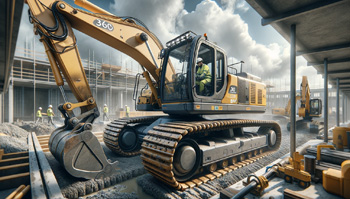
360 Excavator
A 360 excavator operator controls a large digging machine (excavator) which sits on a rotating base, allowing them to pick up large amounts of earth or other materials. They can th...
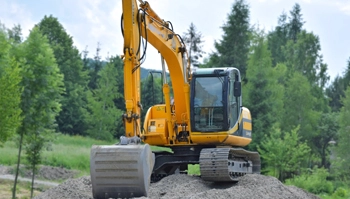
360 Wheeled Excavator / Rubber Duck
A 360 wheeled excavator operator is much like a 360 operator but who operate a 360 wheeled excavator, which is a type of heavy machinery that is used for digging, grading, and movi...

Admin
Administrators have a wide range of responsibilities and they need a variety of skills. A successful Administrator candidate will have various prerequisite skills and qualification...
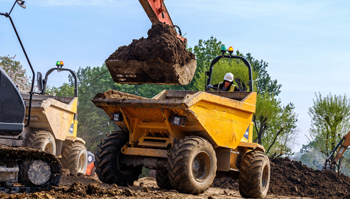
Articulated Dump Truck
An articulated dumper truck driver is a person who operates a large, heavy vehicle called an articulated dumper truck, also known as a haul truck or off-road truck. This type of tr...

Assistant Site Manager
An assistant site manager is a person who works under the supervision of a site manager to assist with the day-to-day management of a construction site. The assistant site manager ...

Bathroom Fitter
A bathroom fitter is a person who installs and repairs bathroom fixtures and appliances, such as toilets, sinks, showers, and bathtubs. The bathroom fitter is responsible for ensur...

Breaker Operative
A breaker operative is a person who operates a machine called a breaker, which is used to break up concrete, asphalt, and other hard materials. The breaker operative is responsible...
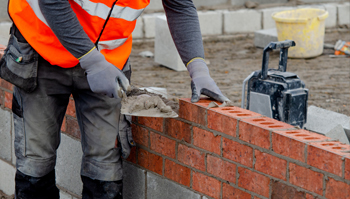
Bricklayer
A Bricklayer works with bricks and mortar to builds houses, repair walls and chimneys and refurbish decorative stonework or any other structure built with bricks/blocks. A brickla...

Call Centre
Call centre staff can be the centre of operations for a business. Working as the front line for contact queries and new lead generation a call centre operator will look after their...

Carpenter
Carpentry is one of the oldest construction trades and is in high demand. Carpenters use natural materials (wood/timber) to install wooden fittings and fixtures. As a carpenter you...

Carpet Fitter
A carpet fitter is a person who installs carpets in homes, businesses, and other buildings. The carpet fitter is responsible for measuring and cutting the carpet to the appropriate...

Ceiling Fixer
A ceiling fixer is a person who installs and repairs ceilings in homes, businesses, and other buildings. The ceiling fixer is responsible for installing ceiling materials, such as ...
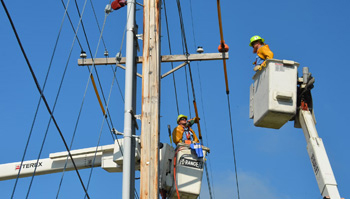
Cherry Picker
A cherry picker operator is a person who operates a machine called a cherry picker, which is a type of aerial lift that is used to reach high places. The cherry picker operator is ...
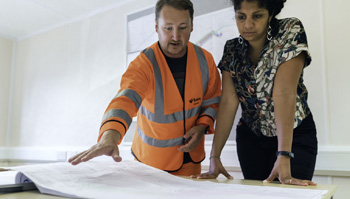
Civil Engineer
A civil engineer is a professional who designs, builds, and maintains the infrastructure that is essential for modern life. This includes things like roads, bridges, buildings, wat...

Cleaner
A cleaner is a person who is responsible for maintaining cleanliness in a particular area, such as a home, office, or public space. Cleaners may be responsible for tasks such as sw...

Construction Civil Estimator
A civil estimator is a professional who estimates the cost of construction projects, specifically those related to civil engineering. This can include projects such as building roa...

Crane
A crane operator is a person who operates a crane, which is a large machine that is used to lift and move heavy objects. These cranes can be stationary or mobile. Crane operators a...
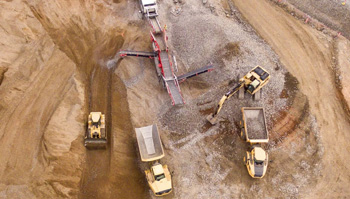
Crusher
A crusher operator is a person who operates a machine called a crusher, which is used to process raw materials, such as rock, raw metals, and other materials, into smaller pieces. ...

Curtain & Blind Installer
A curtain and blind installer is a person who installs curtains, blinds, and other window coverings in homes, businesses, and other buildings. The curtain and blind installer is re...
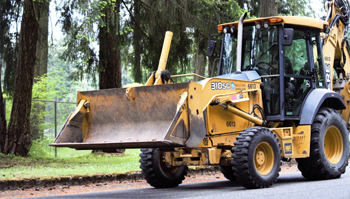
Dozer / Crawler
A dozer operator, also known as a crawler operator, is a person who operates a dozer, also known as a crawler or bulldozer, which is a large, heavy construction vehicle with a meta...

Drivers Mate
A driver's mate, also known as a driver's helper or delivery helper, is a person who assists a delivery driver with loading and unloading goods, as well as with navigating to and f...
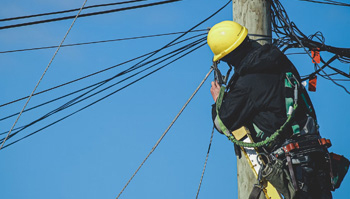
Electrician
An electrician is a person who installs, repairs, and maintains electrical systems in homes, businesses, and other buildings. Electricians are responsible for a wide range of tasks...
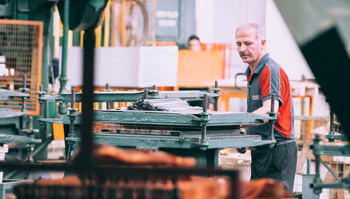
Factory Operative
A Factory Operative, or production line worker is someone who works in a factory putting together goods, or overseeing the technology or machinery that is producing goods. Most Fac...

Field Service Engineer
A field service engineer is a person who provides technical support and maintenance for a wide range of equipment and systems, often in a customer's place of business or at a remot...

Fire Protection Engineer
A fire protection engineer is a professional who designs and evaluates systems that are used to prevent, control, and extinguish fires. Fire protection engineers may work in a vari...
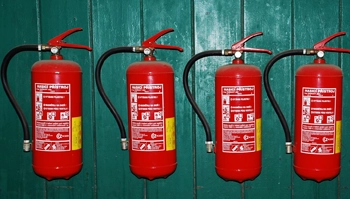
Firestopper
A firestopper is a person who installs and maintains systems that are used to prevent the spread of fires in buildings. Firestoppers are responsible for installing fire-resistant m...
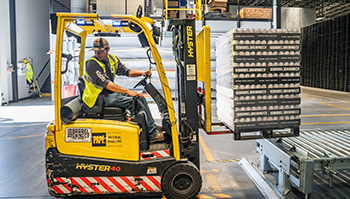
Forklift
A forklift operators main role is to operate a forklift. Depending on the working environment you may be required to carry out other works between operating the forklift. A forklif...
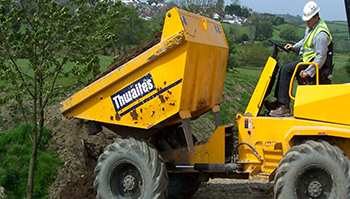
Forward Tipper Dumper
A forward tipping dumper is a machine used in construction to transport large amounts of materials and dump them off when at the end of a journey. You might think of them as very l...

Gatesman
A gatesman is a person who is responsible for operating and maintaining gates, barriers, and other security systems in a particular area, such as a gated community, a parking garag...

General Builder
General builders may be involved in a wide range of construction projects, including residential, commercial, and industrial buildings. Some general builders may specialize in a pa...
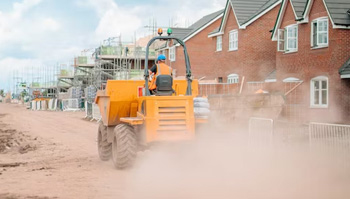
Groundworker
A Groundworker is a construction professional who mainly prepares the ground before, during and after other construction workers can do their duties. Groundworkers are often the fi...
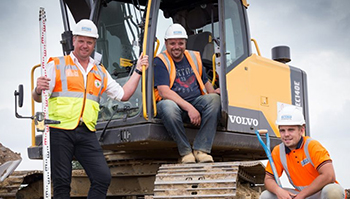
Groundworks Gang
A groundworks gang is a team of construction workers who specialize in groundworks, or the preparation of the ground for construction. Groundworks typically involve a range of acti...

Handyman
Commonly known as a handyman. A handyperson is a person who is skilled at a wide range of repair and maintenance tasks. Handypersons may be called upon to perform a variety of task...
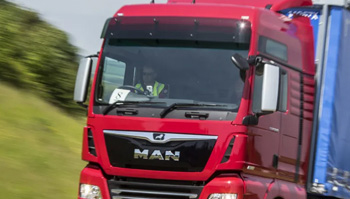
HGV
Heavy Goods Vehicle (HGV) drivers load, secure and transport goods between locations. They move items for suppliers and customers, locally, nationally and sometimes internationally...
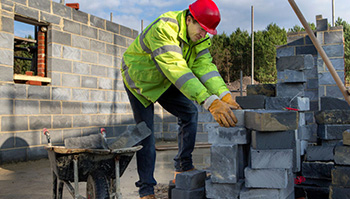
Hod Carrier
A hod carrier is a construction worker who is responsible for transporting materials around a construction site. A hod is a large, rectangular tray that is used to carry bricks, mo...

Hospitality
Hospitality staff may have a variety of roles and responsibilities, depending on the specific job and the needs of the establishment. Some common roles for hospitality staff includ...
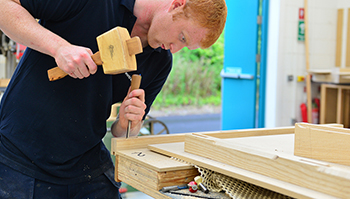
Joiner
A joiner is a skilled craftsman who specializes in the construction and installation of wooden structures, such as doors, windows, and staircases. Joiners use a range of hand and p...

Labourer
In short, a labourer is someone who performs manual labour jobs. Within the construction industry this can range from a general labourer to an experienced multiskilled labourer. Ge...

Landscaper
A landscaper is a professional who is responsible for designing, planning, and maintaining outdoor spaces, such as gardens, parks, and other green areas. Landscapers may work with ...
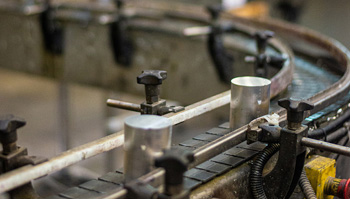
Manufacturing Team Member
A manufacturing team member is a worker who is responsible for performing a variety of tasks related to the production of goods in a manufacturing setting. Manufacturing team membe...

Mastic Man
A mastic applicator is a construction professional who is trained in the application of mastic, which is a type of sealant used to fill gaps, seal joints, and provide a weather-res...

Multi Drop Delivery
A multi drop delivery driver is a professional driver who is responsible for transporting and delivering packages to a variety of locations. Multi drop delivery drivers typically w...
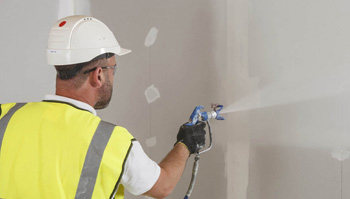
Painter & Decorator
A painter and decorator is a construction professional who is responsible for applying paint and other finishes to the interior and exterior surfaces of buildings and other structu...

Plasterer
A plasterer is a construction professional who specializes in applying plaster to walls and other surfaces in order to create a smooth, finished surface. Plasterers may work on a v...

Plumber
A plumber is a professional who is trained in the installation, repair, and maintenance of plumbing systems. Plumbers work on a variety of projects, including residential, commerci...

Production Compounder
A production compounder is a worker who is responsible for mixing and compounding raw materials to produce finished products in a manufacturing setting. Production compounders typi...

Quantity Surveyor
A quantity surveyor is a construction professional who is responsible for managing the costs of construction projects. Quantity surveyors work with contractors, construction compan...
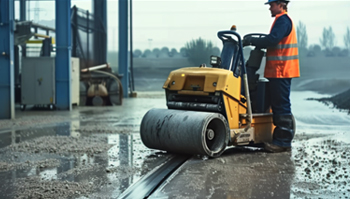
Ride On Roller
A ride on roller operator is a construction worker who operates a ride on roller, which is a type of heavy machinery used to compact soil, asphalt, and other materials during const...

Rigid Dump Truck
A rigid dump truck operator is a professional driver who operates a rigid dump truck, which is a type of heavy vehicle that is used to transport materials such as dirt, sand, and g...

Roofer
A roofer is a construction professional who is trained in the installation, repair, and maintenance of roofing systems. Roofers may work on a variety of projects, including residen...

Scaffolder
A scaffolder is a construction professional who is trained in the construction and use of scaffolding, which is a temporary platform used to support workers and materials during th...
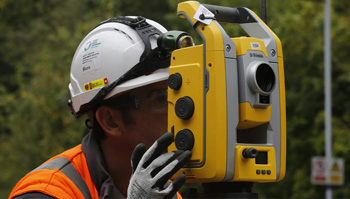
Setting Out Engineer
A setting out engineer is a construction professional who is responsible for establishing the reference points and lines that are used to guide the construction of a building or ot...

Sewing Machinist
Sewing machinists may work in a variety of settings, including clothing factories, home-based businesses, and design studios, and they may specialize in a particular type of produc...

Shuttering Carpenter
A shuttering carpenter is a construction professional who is trained in the construction and use of shuttering, which is a temporary framework used to support and shape wet concret...
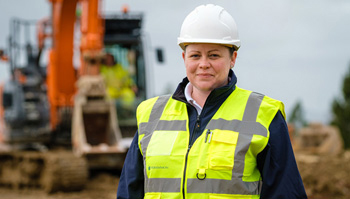
Site Manager
A site manager is a person who is responsible for overseeing the day-to-day operations at a construction site, ensuring that the project is completed on time and within budget. The...

SMSTS
SMSTS stands for Site Management Safety Training Scheme. It is a training course that is designed to provide site managers and other construction industry professionals with the kn...
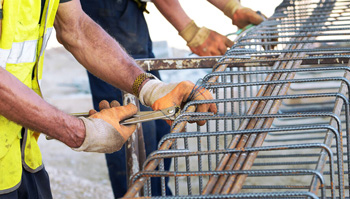
Steel Fixer
A steel fixer is a construction professional who is trained in the installation and repair of steel reinforcing bars and other steel components ready for concrete to be poured to m...

Stonemason
Stonemasons cut and prepare stone to build or repair stone structures. These could include homes, historical buildings, monuments, headstones and statues. Stonemasons may also use ...
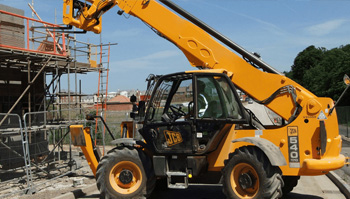
Telehandler
Telehandlers are multi-purpose machines that lift, move and place material. A telehandler — short for “telescopic handler” — accepts different attachments to lift, move and...

Tiler
A tiler is a construction professional who is trained in the installation and repair of tile surfaces, including floors, walls, and countertops. Tilers may work on a variety of pro...

Tractor
A tractor operator is a professional driver who operates a tractor, which is a type of heavy vehicle that is used for a variety of purposes, including farming, landscaping, and con...
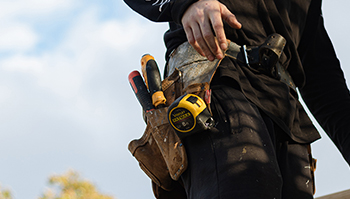
Trades Mate
A trades mate is a construction worker who assists a tradesperson, such as a carpenter, electrician, or plumber, in completing construction projects. Trades mates may be responsibl...

Upholsterer
An upholsterer is a worker who is trained in the repair and restoration of furniture and other items that are covered with fabric or other materials. Upholsterers may work on a var...

Warehouse
The Warehouse Operative Job role is crucial in many businesses. A warehouse operative is a general worker within a warehouse, some may call this a warehouse worker, a warehouse ass...

Welder
A welder is a skilled tradesperson who is trained in the use of equipment and techniques to join and cut metal parts. Welders may work in a variety of settings, including factories...
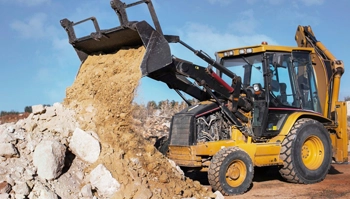
Wheeled Loading Shovel
A wheeled loading shovel operator operates a type of heavy machinery used to load, transport, and unload a variety of materials, including dirt, sand, gravel, and waste. Wheeled lo...

Window Fitter
A window fitter is a construction professional who is trained in the installation and repair of windows in residential and commercial buildings. Window fitters may be responsible f...
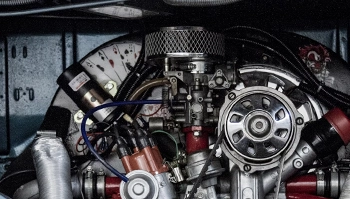
Mechanical Engineer
Mechanical engineering is a field of engineering that focuses on the design, development, construction, and operation of a wide range of mechanical systems, including engines, mach...

Cladder
A cladder is a construction worker who is trained in the installation and repair of cladding, which is a protective or decorative layer that is applied to the exterior or interior ...
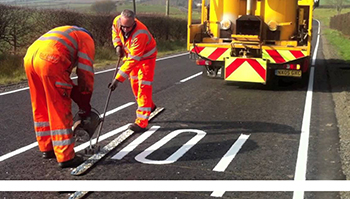
White Liner
A white liner is a person who is responsible for installing and maintaining white lines on roads and highways. White lines are used to mark the edges of the roadway, lanes and traf...

Car Valeter
A car valet is a person who is responsible for cleaning and maintaining the appearance of vehicles, typically at a car dealership, rental car agency, or other automotive-related bu...
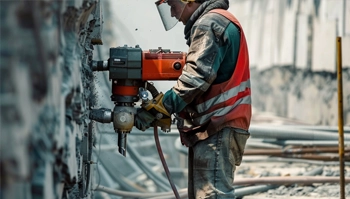
Diamond Driller
A diamond drilling operator is a construction worker who operates a diamond drill, which is a type of specialized drilling equipment that is used to create precise, circular holes ...
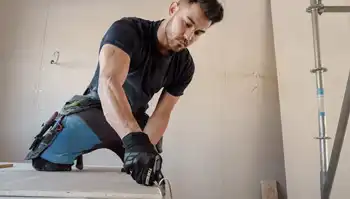
Dryliner
A dryliner is a construction worker who is trained in the installation and repair of drywall and other types of wallboard. Dryliners may work on a variety of projects, including re...

Engineer
An engineer is a professional who is trained in the design, development, and maintenance of systems, products, and processes. Engineers may work in a variety of fields, including m...

Fabricator
A fabricator is a person who is skilled in the production of metal products, structures, and components. Fabricators may work in a variety of industries, including manufacturing, c...

Fencer
A fencer is a person who is trained in the construction and repair of fences, which are structures that are used to enclose or mark the boundaries of a property or area. Fencers ma...

Financial Controller
A financial controller is a professional who is responsible for the financial management and oversight of an organization. Financial controllers may be responsible for tasks such a...

Floor Layer
A floor layer is a construction worker who is trained in the installation and repair of flooring materials, such as carpet, tile, wood, and vinyl. Floor layers may be responsible f...

Foreman
A foreman is a person who is responsible for the supervision and coordination of a team of workers, typically in a construction or manufacturing setting. Foremen may be responsible...

Project Manager
A project manager is a professional who is responsible for the planning, execution, and completion of a specific project or set of projects within an organisation. Project managers...

Quality Control Inspector
A quality control inspector is a professional who is responsible for ensuring that products or services meet a certain level of quality before they are released to the public or so...

Stores Person
A stores person is a person who is responsible for the organization and management of a store or warehouse, typically in a retail or distribution setting. Stores people may be resp...

Traffic Marshall
A traffic marshall is a person who is responsible for controlling and directing traffic in a construction or other work zone, typically to ensure the safety of workers and the gene...
Looking for work?
Simply register now in seconds and stay informed on our latest jobs.
Register in SecondsAre you an employer looking for Construction Workers? Find vetted workers today.
Submit a vacancyWant us to call you back?
No problem, let us know your details and we will get back to you ASAP.
What would be the best time to call?
Please note these times are not guaranteed.